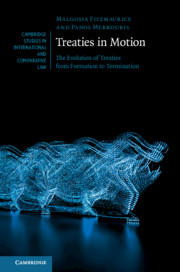The growing sense of urgency regarding various global environmental problems has prompted calls for global legislative processes that could produce binding outcomes. However, as law-making gravitates into international forums, questions are raised regarding the legitimacy of international environmental governance. Much law-making today occurs under multilateral environmental agreements (‘MEAs’), such as the Climate Change Convention and its Kyoto Protocol. The article examines the role of Conferences of the Parties (‘COPs’) in MEA-based law-making. It juxtaposes the standard conception of international law-making and an alternative account, which sees law-making not simply as crystallized in formal consent procedures but as continuous interactional processes. The interactional account can help build the foundations for legitimate international environmental governance, and can provide important guidance to law-makers, even as they, even as they continue to operate within a formal, consent-based framework.


